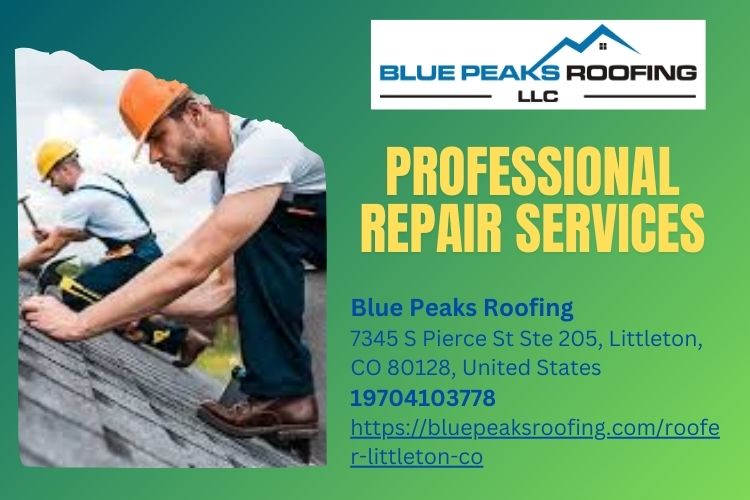Introduction
When it comes to maintaining the integrity of your home, one aspect often overlooked is the condition of your roof. The roof is your first line of defense against the elements; a durable and well-maintained roof can significantly improve your home's longevity and energy efficiency. Thus, regular inspections play a pivotal role in ensuring that your roofing system remains intact and functional over time. In this blog post, we'll explore why regular inspections are key to maintaining your roof's health and safety, brought to you by the experts at Blue Peaks Roofing.
Why Regular Inspections are Key: A Blog Post by Blue Peaks Roofing Team
Regular inspections serve as an essential practice for anyone who owns a home or commercial property. These assessments not only identify potential problems before they escalate but also provide peace of mind for homeowners. Whether you're considering selling your property or simply want to ensure its longevity, understanding the importance of regular roofing inspections can save you headaches down the road.
The Importance of Routine Roofing Inspections
Routine inspections help detect minor issues before they turn into significant problems. From leaks to structural damage, having a professional assess your roofing system can prevent costly repairs later on.
What Can Be Found During an Inspection?
During a roofing service littleton routine inspection, various issues can be identified:
- Water Damage: Inspectors check for signs of water pooling or leaks. Shingle Wear: Missing or damaged shingles are noted for replacement. Gutter Blockages: Clogged gutters can lead to drainage issues.
By identifying these issues early on, homeowners can avoid extensive damages that would require more extensive repairs.
Understanding Your Roof's Lifespan
What Determines a Roof's Longevity?
Several factors determine how long your roof will last:
Material Quality: Asphalt shingles may last up to 30 years, while metal roofs can endure for over 50 years. Installation Method: Proper installation plays a crucial role in longevity. Climate Factors: Areas with heavy snowfall or extreme heat may see reduced lifespans.How Regular Inspections Extend Lifespan
By routinely inspecting your roof, you can better manage these variables. Regular maintenance keeps up with wear and tear caused by environmental conditions and ultimately extends the life of your roof.
How Often Should You Schedule Inspections?
Recommended Frequency for Residential Homes
For most residential homes, it's advisable to schedule a professional inspection at least once a year. However, if you live in an area prone to severe weather conditions—like hailstorms or heavy snowfall—you may want to consider bi-annual inspections.
Signs You Need an Immediate Inspection
If you've recently experienced severe weather or noticed visible signs of damage such as:
- Leaks in ceilings Cracked shingles Sagging areas
It's time for an immediate inspection from a trusted local roofing service like Blue Peaks Roofing.

The Role of Professional Inspectors
What Makes Professional Inspectors Different?
Professional inspectors bring expertise that homeowners typically lack:
- They understand building codes. They have experience with various roofing materials.
This knowledge enables them to spot issues that an untrained eye might miss.
What Happens During a Professional Inspection?
A typical roofing inspection involves:
Checking the exterior surfaces Examining internal components like insulation Evaluating ventilation systemsTheir comprehensive approach ensures that all factors contributing to roof health are taken into account.
Cost-Benefit Analysis of Regular Inspections
Understanding The Financial Aspects
While there’s a cost associated with hiring professional inspectors, this expense is negligible compared to potential repair costs from neglecting regular checks.
Average Cost Breakdown
| Service | Average Cost | |---------|--------------| | Annual Inspection | $200 - $500 | | Minor Repairs | $150 - $800 | | Major Repairs | $1,000+ |
As shown in this table, proactive measures like regular inspections can save you thousands over time.
Long-Term Savings Through Preventive Care
Taking care of minor repairs before they escalate into major problems leads directly to financial savings and improved home value—a win-win situation!

Common Misconceptions About Roofing Inspections
Misconception #1: My Roof Looks Fine; I Don’t Need An Inspection!
Many homeowners believe that if their roof appears fine from the ground level, there's no need for an inspection. This could not be further from the truth; many issues remain hidden until they become serious complications.
Misconception #2: It's Too Expensive
While some may view inspections as an unnecessary expense, the cost is minimal compared to potential damage costs if serious problems go unnoticed.
How Weather Impacts Your Roof’s Integrity
Winter Considerations: Snow and Ice Dams
In regions facing harsh winters, snow buildup can lead to ice dams—creating pressure points on roofs leading to leaks indoors.
Summer Storms: Hail Damage
During summer storms, hail can cause immediate damage that might not be visible until after subsequent rainfalls create leaks inside homes.
Checklist for Homeowners Before An Inspection
To ensure comprehensive coverage during inspections, homeowners should prepare by following this checklist:
Clear gutters and downspouts. Trim overhanging tree branches. Ensure easy access for inspectors. Document any visible damage beforehand.This preparation allows inspectors to focus on assessing rather than clearing out obstructions first.
FAQs About Regular Roof Inspections
Q1: How long does a typical roofing inspection take?
A: Most roofing inspections take about 1-2 hours depending on the size and complexity of the structure being evaluated.
Q2: Do I need to be home during the inspection?
A: No; however, being present allows you to ask questions directly during the assessment process.
Q3: What should I do if my inspector finds damage?
A: Consult with them regarding next steps; often small repairs can be handled immediately after assessment.
Q4: Can I perform my own inspection?
A: While DIY checks can happen from ground level using binoculars or cameras, only professionals should conduct thorough evaluations involving climbing onto roofs safely.
Q5: Will insurance cover inspection costs?
A: Many policies cover preventative maintenance checks—always consult with your insurance provider beforehand!
Q6: Is it too late for an inspection if my roof already shows signs of wear?
A: No! It’s essential even if wear is noticeable; professionals will guide you through repair options based on findings discovered during evaluations!
Conclusion
In summary, regular roofing inspections are not just important—they're essential! By investing in routine assessments from qualified professionals like those at Blue Peaks Roofing in Littleton CO., homeowners protect themselves against potential hazards while extending their roofs’ lifespan significantly over time. Remember—the best offense against costly repairs is always a good defense through vigilance!
So why wait? Schedule your next roofing inspection today!
Contact Us
Blue Peaks Roofing
Address: 8000 S Lincoln St Ste #201, Littleton, CO 80122, United States
Phone: (970) 410-3778
By understanding why regular inspections are key—as detailed here—you’ll empower yourself as a homeowner while preserving valuable assets in both property value and peace-of-mind!